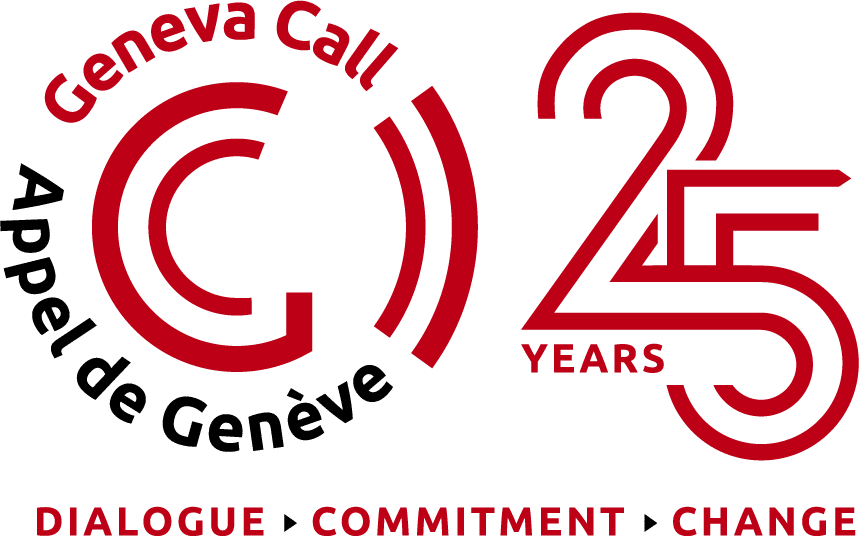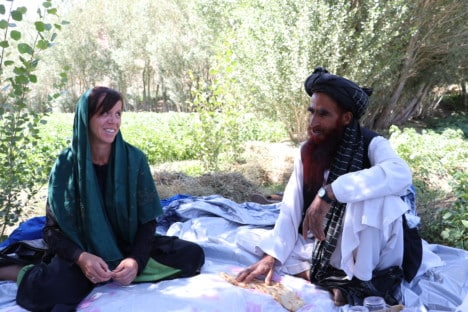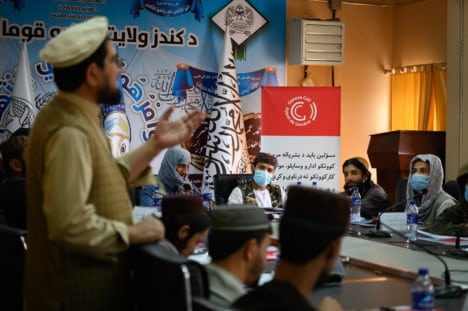Afghanistan
Thematic areas: Humanitarian Norms, Humanitarian Access, Gender, Health Care, and Education
Since the Taliban’s ascension into the de facto government of Afghanistan in August 2021, their acts have been those of the state. This obligates the Taliban to respect humanitarian norms, ensure peace and stability, and strive for equality and inclusion. Against this background, security and safety remain an exceedingly high concern with other marginalized groups marginalized groups vying for power.
The complex situation isolates vulnerable Afghan groups, such as religious and cultural minorities and women and girls. Global and regional dynamics also influence Afghanistan’s humanitarian crisis. With Western powers disengaging and no recognition of the Kabul de facto authority, regional actors are becoming increasingly involved. The humanitarian situation in 2022 worsened due to multiple factors, including drought, natural disasters, economic shocks, and protection threats, shifting from 2021’s focus on conflict. Localized violence, war’s lasting effects, and recent large-scale returnees from Pakistan and Iran hinder recovery efforts and resilience. Protection concerns encompass gender-based violence, abduction, forced displacement, child marriage, discrimination, property theft, access restrictions, and humanitarian access challenges. Afghanistan’s situation remains highly fragile, demanding dialogue, rights protection, and community cohesion.
Public statement issued in Geneva in February 2022 by a high-level delegation of the Taliban on the protection of medical missions, humanitarian access, and education made them more aware of and compliant with IHL obligations.
According to the ACLED Conflict Index, in January 2024, Afghanistan will rank 25th among countries and territories experiencing extreme, high, or turbulent levels of conflict. The country dropped 12 places compared to last year but is always classified as “consistently concerning.”
Geneva Call’s activities in the country
Humanitarian Access Advocacy:
– Successfully engaged with the General Directorate of Intelligence (GDI) to facilitate humanitarian access, countering interference in the work of INGOs and NGOs.
– Negotiated a GDI directive to reduce interference, including the establishment of a complaint mechanism for access issues.
– Positive feedback received from the humanitarian community regarding these developments.
Training Programs for Former Taliban Turned Policemen:
– Implemented impactful training programs for former Taliban members now serving as policemen in Kabul, Kandahar, Mazar-e-sharif, Bamyan, Jalalabad and Kunduz, emphasizing humane treatment of civilians and suspects.
– Extended training to police officers, prison staff, and patrol members, resulting in notable positive developments.
– Interviews with participants highlighted improved interactions and understanding of humanitarian principles.
Practices Changes in Law Enforcement (Kunduz):
– Conducted training for Taliban-turned-policemen in Kabul, Kandahar, Mazar-e-sharif, Bamyan, Jalalabad and Kunduz, where Geneva Call is present and working with ex-fighters and current low enforcement personnel.
– Positive outcomes were observed, with participants showing a shift in thinking and behavior towards improved treatment of detainees.
Access to Police HQ in provinces of operation
– Led the International Summer School on humanitarian norms for scholars in Kabul, fostering opportunities for collaboration with the Kabul police academy.
– Negotiated with the head of the police academy, resulting in agreement to train trainers on humanitarian norms and principled law enforcement.
– The Training of Trainers (ToT) initiative is integrated at provincial level in all GC provinces. reaching over 300 trainers.
Key figures
Over 300 law enforcement trainers received training from Geneva Call, improving law enforcement practices all over the country.
Over 250 Police trainers received the training on IHL norms and as well as on the protection of civilians at the checkpoints.
Read our Annual Report to learn more about our work in Afghanistan in 2024.
Contact information:
Fahad Abbasi – COUNTRY DIRECTOR
fabbasi@genevacall.org


